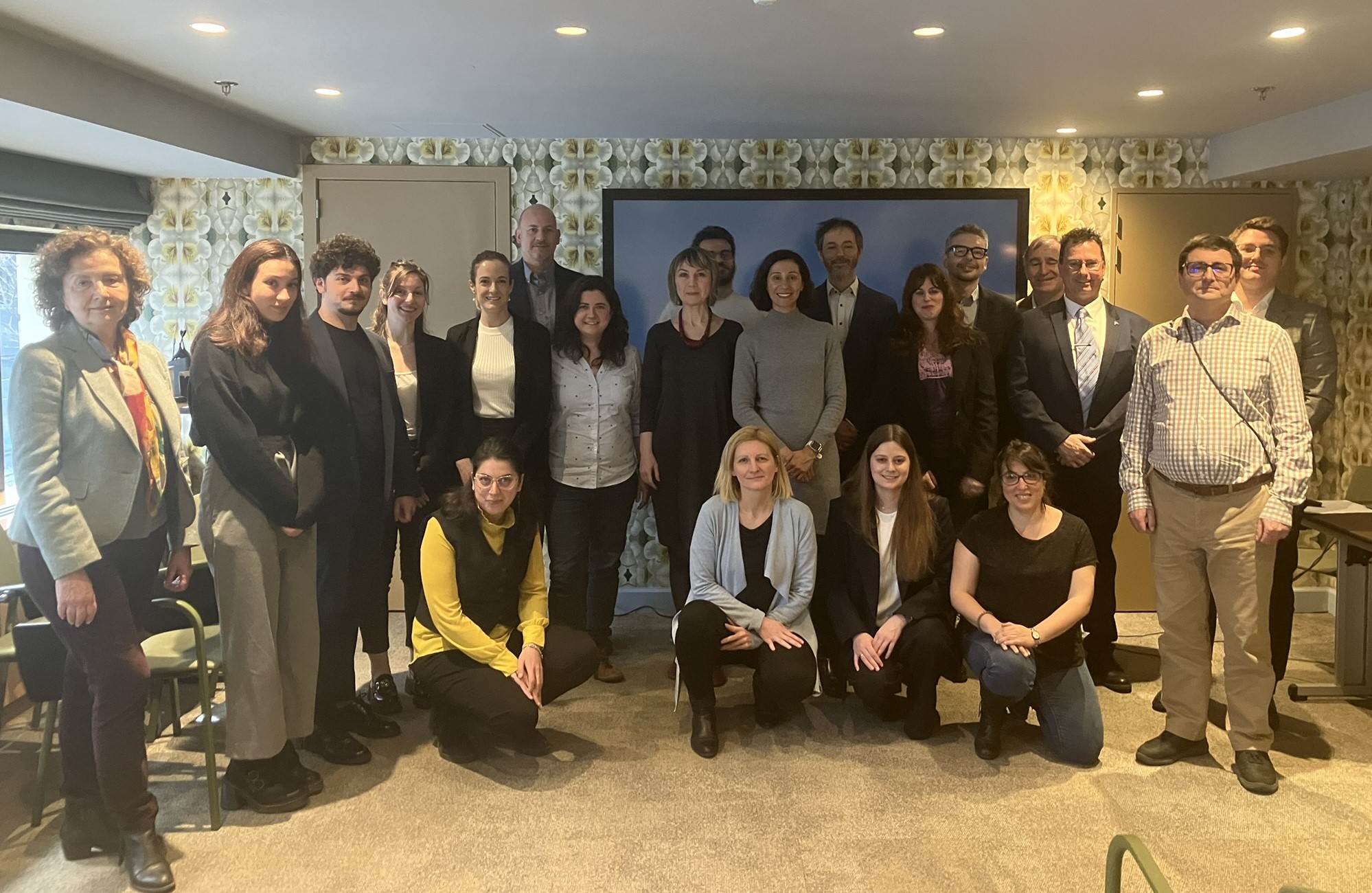RESPOND Participates in the iMonitor Final Conference

On 27 March 2025, S-Com had the opportunity to participate in the Final Conference of the iMonitor project, held at Hotel Indigo in Brussels. Organised by the Government Transparency Institute (GTI) and project partners, the conference marked the closing of a two-year EU-funded initiative that sought to enhance integrity in public procurement by combining data-driven risk assessments with grassroots civic monitoring. With its multi-country approach and focus on empowering citizens to hold public authorities accountable, iMonitor positioned itself as a replicable and scalable model in the European anti-corruption landscape.
The event opened with remarks from Jeroen Blomsma, Head of Sector for Integrity and Anti-Corruption at the European Commission’s DG JUST, who underscored the importance of the project within the broader EU anti-corruption agenda. Referring to a 2024 European Commission study identifying public procurement as one of the sectors most vulnerable to corruption, Mr. Blomsma pointed to the necessity of adopting innovative tools like those developed under iMonitor. He welcomed the collaboration between institutions and civil society and signaled institutional support for similar initiatives in the upcoming 2026 EU Anti-Corruption Strategy.
Mihály Fazekas, Scientific Director at GTI, echoed these points by highlighting how corruption erodes trust in institutions and reinforces political polarization. He stressed the democratic value of civic oversight mechanisms and praised the iMonitor model for its potential to empower ordinary citizens to play a role in safeguarding public spending.
The opening speeches were followed by a keynote address from Nicolae Ștefănuță, Vice-President of the European Parliament, who voiced strong support for civic-led transparency efforts. Reflecting on the increasing ideological pressures and the political targeting of civil society actors across Europe, Mr. Ștefănuță urged NGOs to defend democratic values by engaging more proactively with institutional actors. He advocated for greater financial support for investigative journalism and civic watchdogs, warning that the EU must now take on a more assertive global role in defending democracy and transparency.
The presentation of the iMonitor model and project results by Bianca Vaz Mondo, Project Manager at GTI, offered a comprehensive overview of the initiative’s methodology and achievements. The iMonitor model follows a three-step process — Select, Monitor, Report — that enables volunteers to identify risky public contracts, monitor their implementation, and generate actionable reports to be submitted to public agencies.
The project had four key areas of intervention: data, skills, network, and action. Significant enhancements were made to the Opentender.eu platform, including the introduction of new integrity indicators and more frequent data updates. In terms of capacity-building, 198 civic monitors were trained through a structured two-module programme that covered public procurement basics, contract analysis, and monitoring techniques. Mentorship from partner organisations proved critical in supporting new monitors, especially those with no prior experience.
Among its major achievements, the project facilitated the monitoring of 96 public contracts valued at approximately €140 million in four countries: Italy, Lithuania, Spain (Catalonia), and Romania. Additionally, an integrated online reporting infrastructure was developed, making it easier for monitors to submit structured reports.
Country Insights
A dedicated panel moderated by Bruno González (Catalonian Anti-Fraud Office) brought together country representatives to reflect on their implementation experiences.
- Italy: Luigi Reggi and Giulia Renzi from Monithon Europe shared how their work built on a decade of civic monitoring. Thirteen civil society organisations took part in monitoring 15 contracts. Eight of these raised concerns, and two may be referred to Italy’s National Anti-Corruption Authority (ANAC). Community relevance was key to maintaining engagement, along with creative initiatives such as field visits and a “Selfie Challenge”.
- Lithuania: Ieva Dunčikaitė from Transparency International Lithuania explained the integration of iMonitor training into law school curricula at Mykolas Romeris University, which enabled the engagement of over 60 students in monitoring 21 contracts. Despite a challenging environment with low levels of civic participation, the academic partnership proved a viable model for scale-up.
- Spain (Catalonia): Pilar Rodriguez from Colpis highlighted their collaboration with the Catalonian Anti-Fraud Office to deliver hybrid training, resulting in 44 trained monitors and 31 contracts examined. Although participation from women was relatively low (32%), the project succeeded in fostering meaningful collaboration between diverse citizen profiles and oversight bodies.
- Romania: Andrei Macsut of the Romanian Academic Society (SAR) described a strong grassroots effort that combined public procurement and asset declaration monitoring. Out of 36 initial volunteers, 15 remained active. One success story involved identifying irregularities in a traffic system project now under investigation, first flagged by a volunteer. Additionally, a parallel data collection exercise on over 1,100 asset declarations is underway.
The iMonitor Final Conference served not only as a moment of reflection but also as a springboard for future engagement as iMonitor prepares for its next phase with expanded geographic reach and thematic focus.
